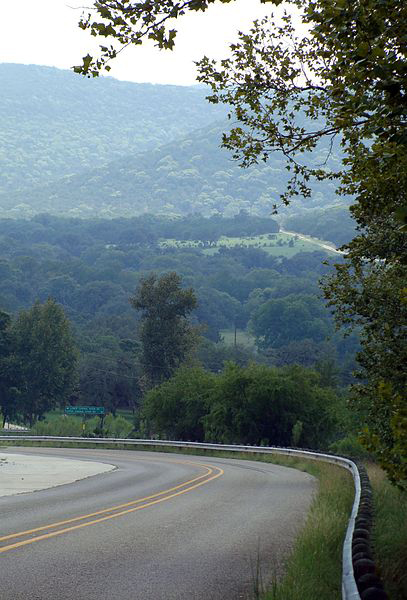- South Texas Students Meet Accordion Music Icons Los Tigres Del Norte In Edinburg Thanks To Khs America/Hohner Alianza Académica Initiative
- Fragile Planet Offers a Nighttime Wildlife Experience
- Falcons Soccer Off & Running
- Cameron County Receives Funds to Improve Two Parks
- Falcons Complete First Half of 32-6A
- School District to Help out Victims of California Wildfires
- Sand Castle Days Continued Despite Unexpected Weather
- Ready for District
- Discussion of Garbage Dumpster Rates, Agreements Between State & City on Highway Regulations, and More
- 31st Annual Shrimp Cook-Off is Right Around the Corner
EPA Proposes Hill Country Site for Superfund Cleanup List
- Updated: April 3, 2015
by Eric Galatas/TNS

On Tuesday, the EPA proposed adding a contaminated groundwater site in the Texas hill country to the National Priorities List of Superfund Sites. Photo: Zereshk/Wikimedia Commons.
AUSTIN, Texas – The Environmental Protection Agency is proposing to add a contaminated site in the Texas hill country to the Superfund National Priorities List.
A plume of toxic tetrachloroethylene or PCE, was found in the groundwater one mile south of the city of Burnet, about 50 miles northwest of Austin. EPA spokeswoman Jennah Durant said the source of the contamination still is unknown and the proposal is the first step in the cleanup process.
“The thing that we want to take care of is where is this contamination coming from,” she said, “and we also want to make sure that it doesn’t get any worse.”
According to the agency, the toxic PCE was released into the Ellenburger-San Saba aquifer, corrupting two public water wells and seven private wells. So far, Durant said, monitoring has shown that the affected groundwater used for drinking is below the agency’s “maximum contaminant level.” Two wells exceeding EPA safety standards are used for irrigation and watering livestock.
The private drinking-water wells in the contaminated aquifer are the only water source for residents who live outside Burnet city limits. Durant said the EPA is taking action because exposure to PCE can affect the nervous system and reproductive system, and may lead to higher risk of some types of cancer.
“It’s also been shown to cause damage to liver and kidneys over long-term exposure,” she said.
Superfund is the federal program that investigates and cleans up the worst hazardous-waste sites in the country. Research shows that investment in Superfund cleanups reduces the incidence of congenital abnormalities for those living within 5,000 yards of a designated site.
